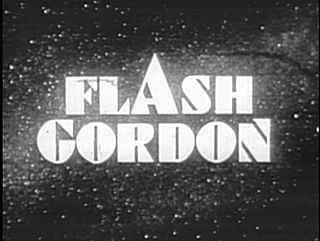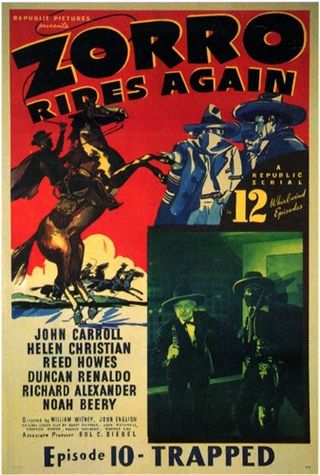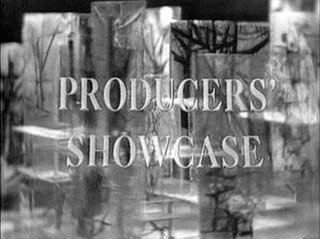A soap opera, or soap for short, is a typically long-running radio or television serial, frequently characterized by melodrama, ensemble casts, and sentimentality. The term "soap opera" originated from radio dramas originally being sponsored by soap manufacturers. The term was preceded by "horse opera", a derogatory term for low-budget Westerns.

The Avengers is a British espionage television series, created in 1961, that ran for 161 episodes until 1969. It initially focused on David Keel, aided by John Steed. Hendry left after the first series; Steed then became the main character, partnered with a succession of assistants. His most famous assistants were intelligent, stylish, and assertive women: Cathy Gale, Emma Peel, and Tara King. Dresses and suits for the series were made by Pierre Cardin.

The Magic Roundabout is an English-language children's television programme that ran from 1965 to 1977. It used the footage of the French stop motion animation show Le Manège enchanté but with completely different scripts and characters.
A miniseries or mini-series is a television series that tells a story in a predetermined, limited number of episodes. Many miniseries programs can also be referred to and can also be shown as a television film that is usually shown with only a few limited number of episodes too as well. "Limited series" is another more recent US term which is sometimes used interchangeably. As of 2021, the popularity of miniseries format has increased in both streaming services and broadcast television.

'Allo 'Allo! is a British sitcom television series, created by David Croft and Jeremy Lloyd, starring Gorden Kaye, Carmen Silvera, Guy Siner and Richard Gibson. Originally broadcast on BBC1, the series focuses on the life of a French café owner in the town of Nouvion, during the German occupation of France in the Second World War, in which he deals with problems from a dishonest German officer, local French Resistance, the handling of a stolen painting and a pair of trapped airmen, all while concealing from his wife the affairs he is having with his waitresses.

A short film is any motion picture that is short enough in running time not to be considered a feature film. The Academy of Motion Picture Arts and Sciences defines a short film as "an original motion picture that has a running time of 40 minutes or less, including all credits". In the United States, short films were generally termed short subjects from the 1920s into the 1970s when confined to two 35 mm reels or less, and featurettes for a film of three or four reels. "Short" was an abbreviation for either term.

Adventures of Superman is an American television series based on comic book characters and concepts that Jerry Siegel and Joe Shuster created in 1938. The show was the first television series to feature Superman and began filming in 1951 in California on RKO-Pathé stages and the RKO Forty Acres back lot. Cereal manufacturer Kellogg's sponsored the show. The first and last airdates of the show, which was produced for first-run syndication rather than for a network, are disputed, but they are generally accepted as September 19, 1952, and April 28, 1958. The show's first two seasons were filmed in black and white; seasons three through six were filmed in color.

Cliffhangers is an American drama television series that aired on NBC from February 27 to May 1, 1979. It attempted to revive the genre of movie serials in a television format. Each hour-long episode was divided into three 20-minute segments, a mystery Stop Susan Williams, a science fiction/western hybrid The Secret Empire and a horror story, The Curse of Dracula.

Several portions of the long-running British science-fiction television programme Doctor Who are no longer held by the BBC. Between 1967 and 1978 the BBC routinely deleted archive programmes for various practical reasons—lack of space, scarcity of materials, and a lack of rebroadcast rights. As a result, 97 of 253 episodes from the programme's first six years are currently missing, primarily from seasons 3, 4 and 5, leaving 26 serials incomplete. Many more were considered lost until recovered from various sources, mostly overseas broadcasters.
Paul Temple is a fictional character created by English writer Francis Durbridge. Temple is a professional author of crime fiction and an amateur private detective. With his wife Louise, affectionately known as 'Steve' in reference to her journalistic pen name 'Steve Trent', he solves whodunnit crimes through subtle, humorously articulated deduction. Always the gentleman, the strongest expletive he employs is "by Timothy!".

Flash Gordon is a science fiction television series based on the King Features characters of the Alex Raymond-created comic strip of the same name. The black and white television series was a West German, French and American international co-production by Intercontinental Television Films and Telediffusion.

VideoGaiden is a Scottish computer games television show that was broadcast by BBC Two Scotland. Its creators and presenters, Robert Florence ("Rab") and Ryan Macleod, were responsible for the internet-distributed videogaming show Consolevania, upon which the show is based.

Spin and Marty is a series of television shorts that aired as part of The Mickey Mouse Club show of the mid-1950s, produced by Walt Disney and broadcast on the ABC network in the United States. There were three serials in all, set at the Triple R Ranch, a boys' western-style summer camp. The first series of 25 eleven-minute episodes, The Adventures of Spin and Marty, was filmed in 1955. Its popularity led to two sequels — The Further Adventures of Spin and Marty in 1956 and The New Adventures of Spin and Marty in 1957.

Zorro Rides Again (1937) is a 12-chapter Republic Pictures film serial. It was the eighth of the sixty-six Republic serials, the third with a Western theme and the last produced in 1937. The serial was directed by William Witney & John English in their first collaboration. The serial starred John Carroll who also sang the title song as a modern descendant of the original Zorro with Carroll stunt doubled by Yakima Canutt. The plot is a fairly standard western storyline about a villain attempting to illicitly take valuable land. The setting is a hybrid of modern (1930s) and western elements that was used occasionally in B-Westerns. It was also the first in a series of five Zorro serials: Zorro's Fighting Legion (1939), Zorro's Black Whip (1944), Son of Zorro (1947) and Ghost of Zorro (1949).

Producers' Showcase is an American anthology television series that was telecast live during the 1950s in compatible color by NBC. With top talent, the 90-minute episodes, covering a wide variety of genres, aired under the title every fourth Monday at 8 pm ET for three seasons, beginning October 18, 1954. The final episode, the last of 37, was broadcast May 27, 1957.

Dinosaur Revolution is a four-part American nature documentary produced by Creative Differences. It utilizes computer-generated imagery to portray dinosaurs and other animals from the Mesozoic era. The program was originally aired on the Discovery Channel and Science.

The Mystery of Black Rose Castle is a scripted 13-part television miniseries. It was originally broadcast on Australia's ABC at 11:35am on Wednesdays. In Germany, the series premiered on 08.02.2003 on KI.KA, and ran on Saturday mornings at 13:10, while reruns have occurred on the German channels ARD, MDR television, RBB TV, and Hesse Television. The show is rated G. In Hungary, it is known as "A Black Rose vár titka", and in Germany it is called "Das Geheimnis von Black Rose Castle".

Nickel Flicks is an American television series that premiered on Nickelodeon in 1979 as one of the network's inaugural programs, and the first original series created for the channel after its launch. It showcased "cliffhanger" serials from the 1920s–40s, in addition to early comic one-reelers and silent short films. It was hosted by producer John Moschitta, who later became famous as the "World's Fastest Talker" in commercials for FedEx. This was Moschitta's first on-camera television role. Nickel Flicks was notably the first Nickelodeon show to be cancelled and the shortest-lived out of Nickelodeon's inaugural series; according to Moschitta, it was cancelled due to complaints about the violent nature of many of the serials.
A serial film,film serial, movie serial, or chapter play, is a motion picture form popular during the first half of the 20th century, consisting of a series of short subjects exhibited in consecutive order at one theater, generally advancing weekly, until the series is completed. Usually, each serial involves a single set of characters, protagonistic and antagonistic, involved in a single story, which has been edited into chapters after the fashion of serial fiction and the episodes cannot be shown out of order or as a single or a random collection of short subjects.















